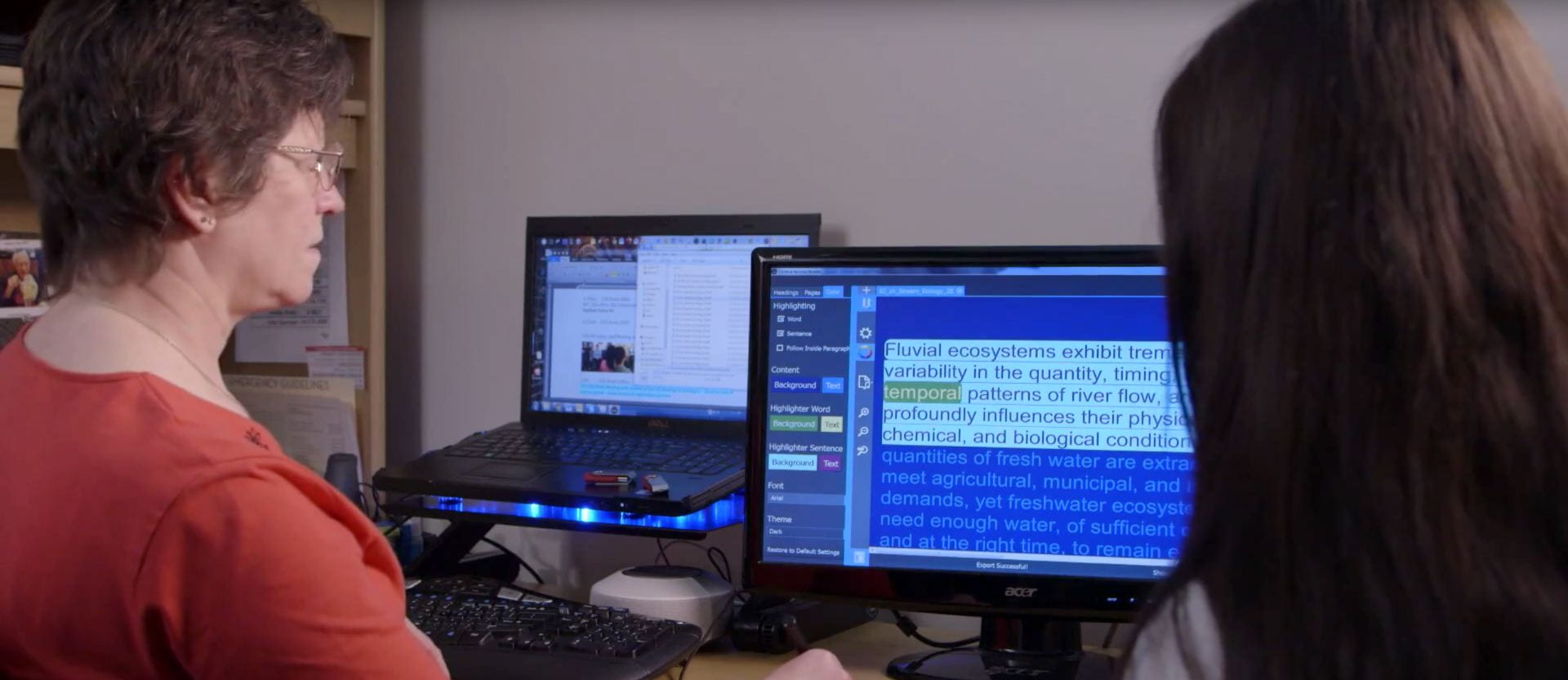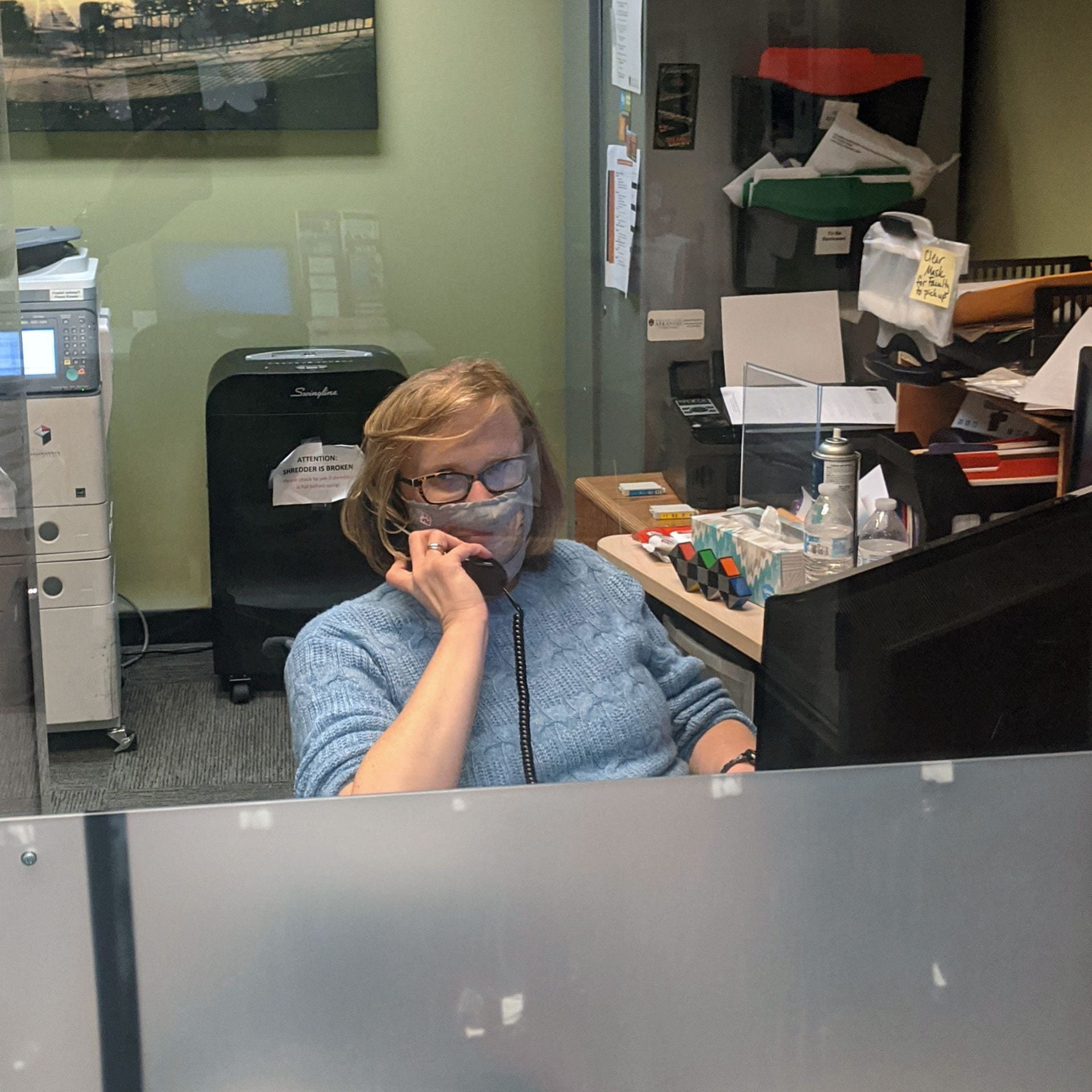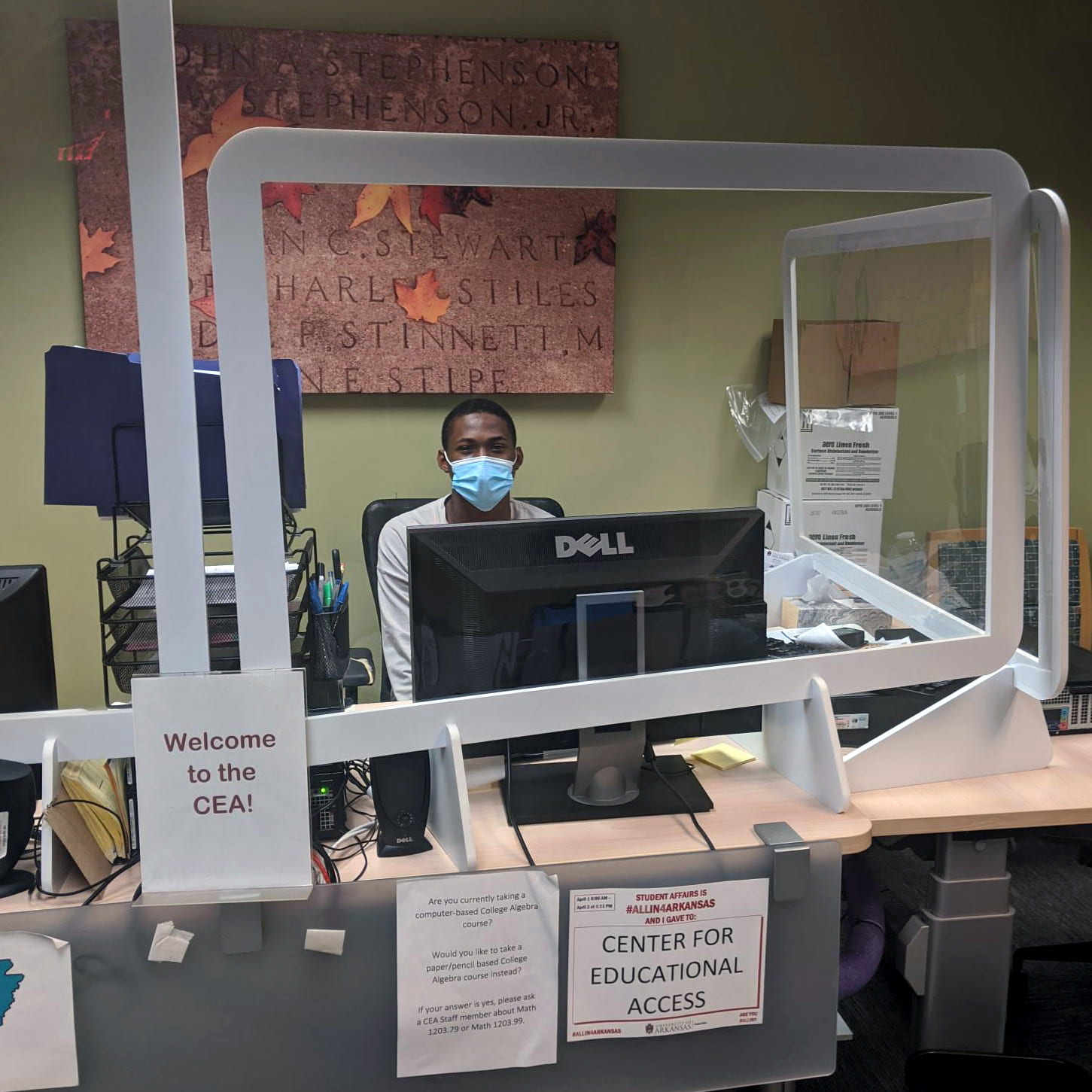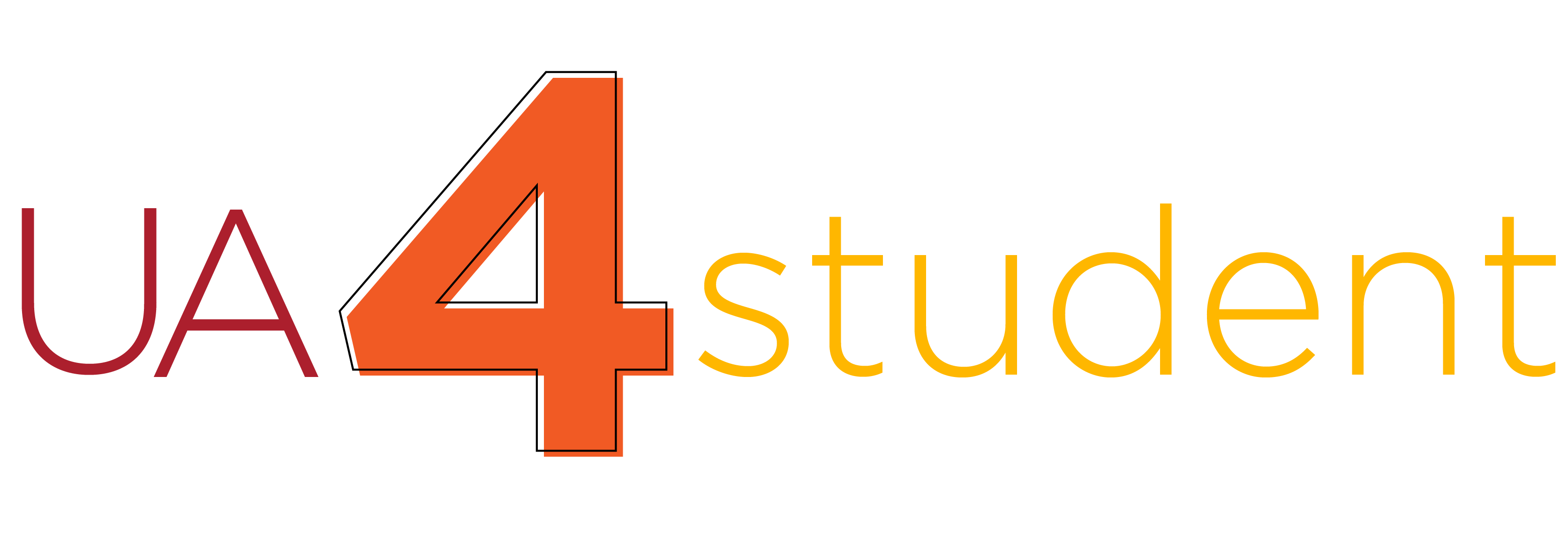
Extra time on exams allows Ben Bury, a freshman studying exercise science, to thoroughly answer questions when he often struggles to put his thoughts down on paper. Obtaining accommodations like this is as easy as registering with the Center for Educational Access (CEA) and requesting accommodations. The CEA takes each student’s specific needs on an individual basis to determine the appropriate accommodations that would best benefit the student.
 Bury’s process began by setting up a meeting with a CEA accommodation counselor. “It was pretty quick and smooth as well as it was easy to work with the advisors to gain accommodations,” he said. “The accommodations that I receive are extended time on tests/quizzes, note taking services, permission to audio record lectures, and permission to use a laptop with internet disabled. They help me have access additional resources if I need it to study with.”
Bury’s process began by setting up a meeting with a CEA accommodation counselor. “It was pretty quick and smooth as well as it was easy to work with the advisors to gain accommodations,” he said. “The accommodations that I receive are extended time on tests/quizzes, note taking services, permission to audio record lectures, and permission to use a laptop with internet disabled. They help me have access additional resources if I need it to study with.”
As with everything else in the world, the CEA was faced with adapting to the changes brought on by a global pandemic. The shift to remote learning meant many students were experiencing new and unanticipated barriers in the classroom environment. Chinwendu Okoronkwo Burns, associate director of student access for CEA, explains student access quickly found a way to confidentially meet with students virtually.
“We implemented an expedited registration option,” she said. “Expedited registration reduced the students wait time and students were able to access accommodations within a matter of a few days.”
Due to the new class setting and required format, new accommodations that addressed the additional barriers were implemented. Rae-Marie Hoops, access coordinator of accessible testing for the CEA, said that remaining proactive in contacting students and instructors is extremely important.
“Working one-on-one to troubleshoot assistive technology issues, such as how to access the text-to-speech tool in blackboard, and coming from a place of empathy and flexibility is essential as we all navigate the challenges and barriers with both learning and teaching in the COVID-19 era,” Hoops said.
Some challenges that faculty at the CEA have faced due to COVID-19 include technology issues, switching from working the office to working from home, and many accommodation plans being revised or modified to better address barriers.


Jennifer Michaud, access coordinator of student access for the CEA, explains that the face-to-face interaction with a student is missed when everything is virtual.
“Even with having virtual options for student meetings, the connection you have with students when in person is not always the same in a virtual meeting,” Michaud said.
Students with disabilities have encountered the same struggles that all students have during COVID-19 times, but on top of those, they are encountering more obstacles related to technology and other problems that no one could have anticipated. Burns said that many students have reported barriers with accessing their documentation from providers. Offices being closed and increased wait times to see a provider has made the CEA work even closer with students and their providers to gain access to documentation or pertinent information needed.
Elaine Belcher, senior program coordinator for the CEA, says that it has been a challenge for students to shift to remote delivery.
“I coordinate note-taking services and students have reported that some classes are hard to follow due to technology issues and surrounding distractions, so they still need the services of a note taker,” Belcher said.
Many students rely on campus access to assistive technology because they may not have the required materials at home. Along with this, most assistive technology does not work when testing in a lockdown browser.
“For example, text-to-speech technology used to read questions aloud is a very common tool used by students with various disabilities during tests and they were unable to use this tool at times,” said Laura James, director of the CEA. “So, we virtually proctored exams and read the questions aloud.”
Knowing this system would not be sustainable, the CEA collaborated this summer with Global Campus, TIPS, and IT to implement a free trial of ReadSpeaker, a text-to-speech software, which is able to work within a lockdown browser. Following this, the CEA partnered with the Student Success Center to fund ongoing access to the software.
If you are a student who needs accommodations, do not be intimidated by the process. It takes courage to ask for help and taking the first step can feel enormous. Reaching out to the CEA and obtaining the accommodations you need will benefit you in your college journey. The CEA is working hard to ensure student success throughout the COVID-19 pandemic and beyond. For more information please visit the Center for Educational Access website.
